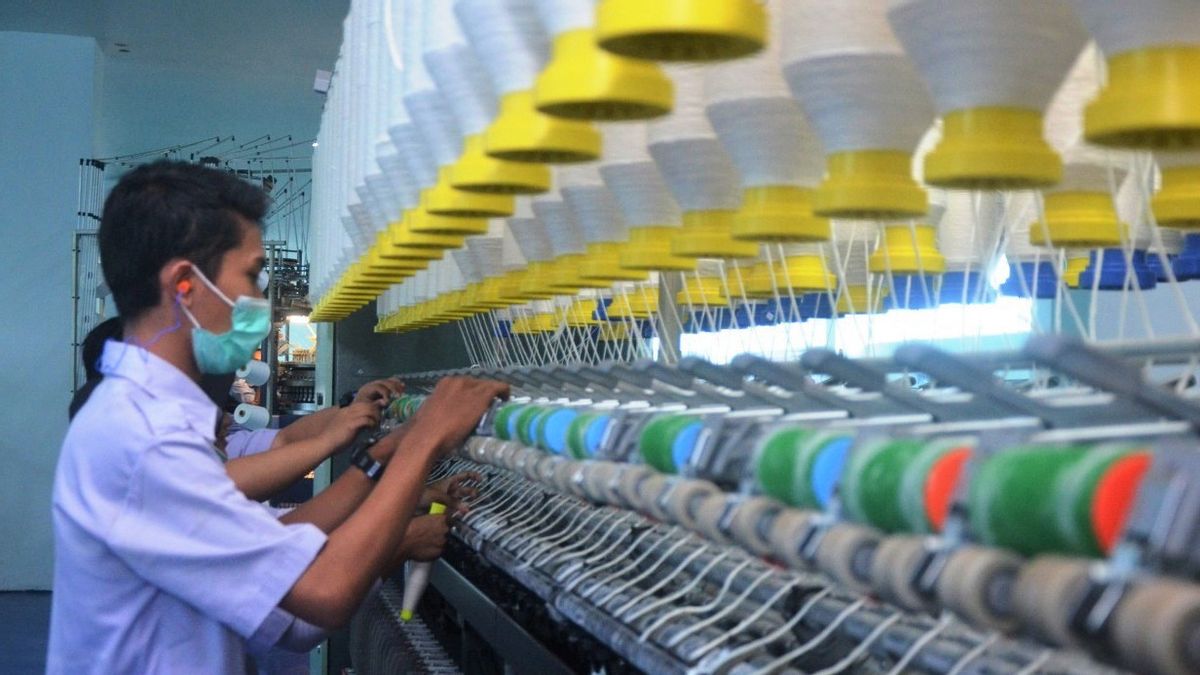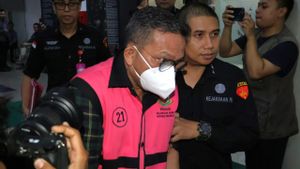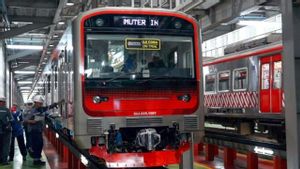JAKARTA - The investment value of the processing industry during the first quarter of 2020 showed a positive number amid pressure due to the COVID-19 pandemic. During the first three months of 2020, total investment in the manufacturing sector in the country touched Rp. 64 trillion, an increase of 44.7 percent compared to the achievement in the same period in the previous year of Rp. 44.2 trillion.
"In the first quarter of 2020, the investment value of the manufacturing industry has contributed significantly, up to 30.4 percent of the total investment of the total sector of IDR 210.7 trillion," said Industry Minister Agus Gumiwang Kartasasmita in Jakarta, Monday, April 27.
The Minister of Industry stated that the details of the investment value in the manufacturing sector in the first quarter of 2020, which came from domestic investment (PMDN) reaching IDR 19.8 trillion and foreign investment (PMA) amounting to IDR 44.2 trillion. The amount of this contribution has increased compared to the acquisition in the same period last year, namely Rp. 16.1 trillion for PMDN and Rp. 28.1 trillion for PMA.
As for the manufacturing sectors that contributed significantly to investment value in the first quarter of 2020, including the Base Metal Industry, Metal Goods, Non-Machinery and Equipment of IDR 24.54 trillion, followed by the Food Industry (IDR 11.61 trillion), Chemical and Pharmaceutical Industry ( Rp9.83 trillion), the Non Metal Mineral Industry (Rp4.34 trillion), and the Rubber and Plastics Industry (Rp3.03 trillion).
Furthermore, the investment value of the Paper and Printing Industry is IDR 2.99 trillion, the Motor Vehicle and Other Transportation Equipment Industry (IDR 2.14 trillion), as well as the Machinery, Electronic, Medical Instruments, Electrical Equipment, Precision, Optical and Watch Industry (IDR 1.99 trillion). ).
Agus emphasized that his party is focused on continuing to strive to encourage the manufacturing industry to keep moving in spurring the wheels of the national economy. However, in the current conditions, the Ministry of Industry emphasizes the industrial sector on the importance of efforts to prevent the spread of COVID-19 by complying with health protocols. "The two sides must be in line," he said.
Before the COVID-19 pandemic occurred, the processing industry in the country still showed positive enthusiasm. This is reflected in the achievement of the Indonesian manufacturing Purchasing Managers Index (PMI) released by IHS Markit, in February 2020 it was at 51.9 or the highest since 2005.
"We are optimistic that by mitigating or issuing strategic policies during the COVID-19 pandemic, it is not impossible that Indonesia before 2030 could become one of the largest economic powers in the world," he said.
Moreover, based on a report from the International Monetary Fund (IMF), Indonesia's economic growth is projected to accelerate by 8.2 percent in 2021.
"So it actually depends on what we are doing now in times of crisis. So, we must be able to make good use of it and handle it appropriately, so that it can become an opportunity for us," said Agus.
Sure Will Rebound
The Minister of Industry believes that Indonesia's economy will rebound more quickly after the COVID-19 pandemic. This confidence comes after China's economy experienced a rebound that is faster than many expected.
"When the pandemic leaves Mother Earth, Indonesia's economic growth will grow faster," he explained.
This belief was conveyed by the Minister of Industry after conducting a video conference with industry associations that imported raw materials for production from China. "It turns out that in mid-March, there were several industries that were able to get raw materials from China again," he explained.
Meanwhile, the Minister of Industry revealed that now is the right moment for Indonesia to build the medical device and pharmaceutical industry sector so that it can meet domestic needs.
"Mr. President has encouraged Indonesia in the medium and long term to become an independent country in the health sector," he stressed.
Furthermore, Agus added, the industrial sector is currently refocusing to assist the government's efforts in strengthening the industrial sector which is included in the high demand category, such as medical devices, medicines, and vitamins.
"We believe in the potential and ability of the domestic industry to meet high demand and also reduce dependence on imports," he concluded.
The English, Chinese, Japanese, Arabic, and French versions are automatically generated by the AI. So there may still be inaccuracies in translating, please always see Indonesian as our main language. (system supported by DigitalSiber.id)











